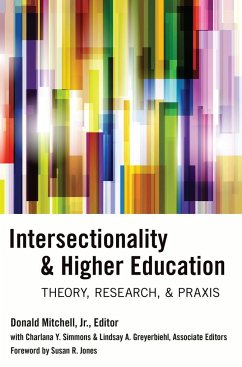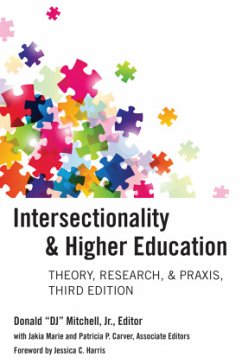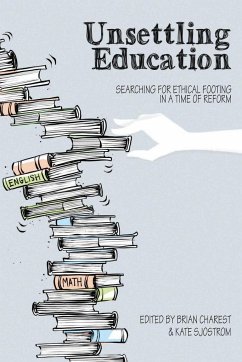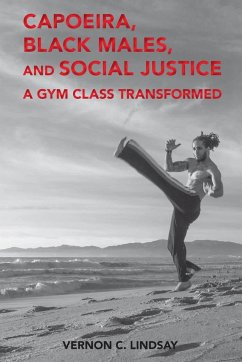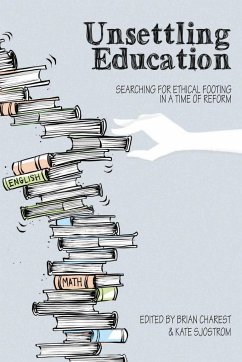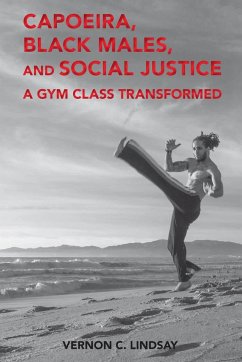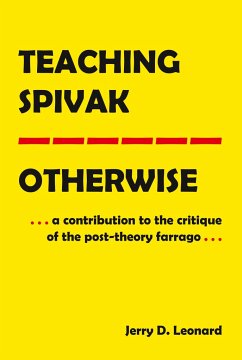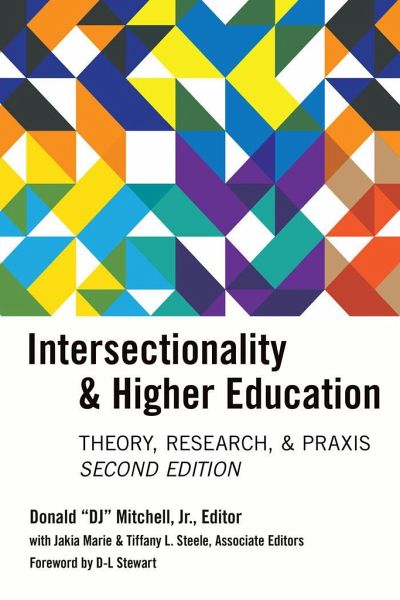
Intersectionality & Higher Education
Research, Theory, & Praxis, Second Edition
Herausgegeben: Mitchell, Donald 'DJ'; Marie, Jakia; Steele, Tiffany L.

PAYBACK Punkte
0 °P sammeln!
Intersectionality is a term coined by Kimberlé Crenshaw in 1989. Crenshaw, a scholar of law, critical race theory, and Black feminist legal theory, used intersectionality to explain the experiences of Black women who-because of the intersection race, gender, and class-are exposed to exponential and interlocking forms of marginalization and oppression often rendering them invisible. The second edition of Intersectionality & Higher Education: Theory, Research & Praxis further documents and expands upon Crenshaw's articulation of intersectionality within the context of higher education. The text...
Intersectionality is a term coined by Kimberlé Crenshaw in 1989. Crenshaw, a scholar of law, critical race theory, and Black feminist legal theory, used intersectionality to explain the experiences of Black women who-because of the intersection race, gender, and class-are exposed to exponential and interlocking forms of marginalization and oppression often rendering them invisible. The second edition of Intersectionality & Higher Education: Theory, Research & Praxis further documents and expands upon Crenshaw's articulation of intersectionality within the context of higher education. The text includes (a) theoretical and conceptual chapters on intersectionality; (b) empirical research and research-based chapters using intersectionality as a framework; and (c) chapters focusing on intersectional practices, all within higher education settings. The volume may prove beneficial for graduate programs in ethnic studies, higher education, sociology, student affairs, and women and gender studies and programs alike.





